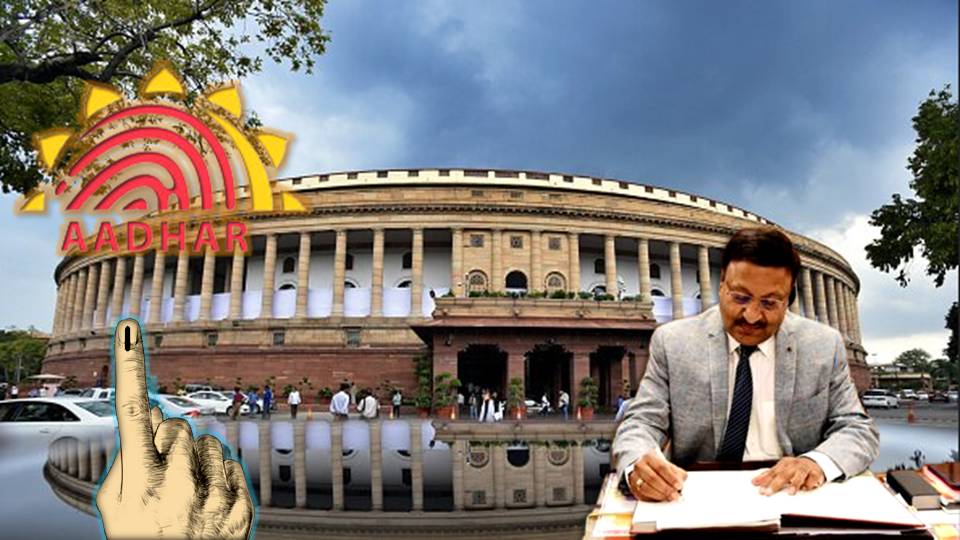Free and fair elections are the cornerstone of a democratic setup and their importance increases in representative democratic functioning where common people transcend their composite aspirations to elected representatives. So to ensure the sustenance of this modern setup, elections must have a just and unbiased electoral process with greater citizen participation. In maintaining the purity and transparency of the process it is also necessary to bring reform according to changing times.
Ban opinion & exit polls
After assuming the charge of the 25th Chief Election Commissioner (CEC) of India, Rajiv Kumar had said that “the commission will follow the time-tested and democratic methods of consultation and consensus-building in bringing about any major reform for dynamically evolving to changing contexts. And in matters for which it is responsible under the Condition, ECI will not shy away from tough decisions”.
Walking on the path of the pledge he had taken assuming the charge, the CEC has started to initiate exemplary reforms in the election process. According to the latest report published by The Indian Express, the CEC has asked the Law Ministry to accelerate the work of electoral reform. The list of Election reforms includes:-
- Issuing notification related to Aadhaar-Voter IDs linkages
- Allowing four qualifying dates for new registration of voters
- Banning opinion polls and exit polls
- Limiting seats from which a candidate can contest to just one
- Powers to de-register political parties
- The disclosure of all donations above Rs 2000 instead of Rs 20000
Read More: Election commission: The most under-appreciated and over-achieving body in India
Election Reforms and their meanings
In December 2021, Parliament passed the Election Laws (Amendment) Bill, 2021 enabling the linking of electoral roll data with the Aadhaar ecosystem. Linkages aim to authenticate the entries in the electoral roll and identify the registration of names of the same person in the electoral roll of more than one constituency or more than once in the same constituency.
The Election Commission in its report titled ‘Proposed Electoral Reforms’ has argued to ban the exit polls and opinion polls. The report argues, “there should be a restriction on publishing the results of such poll surveys before the elections and reiterates its view that like the Exit Polls, there should also be some restriction on conducting and disseminating the results of Opinion Polls right from the day of the first notification of an election till the completion of the poll in all the phases where a general election is held at different phases”. The argument in favour of regulating the publication of such survey reports is that the information disseminated during the process of election is a way to influence the voters’ minds and affect the impartial election process.
Further, the EC also seeks reform in limiting seats from which a candidate can contest an election to just one. Section 33 (7) of The Representation of People’s Act allows a person to file a nomination from two Parliamentary constituencies. The section states “a person shall not be nominated as a candidate for election in case of a general election to the House of the People (whether or not held simultaneously from all Parliamentary constituencies), from more than two Parliamentary constituencies.”
Election Reforms include an Amendment in section 29A (Registration with the Election Commission of association and bodies as political parties) of the RPA act to allow the Election Commission to de-register political parties. Section 29A of The Representation of the People Act, 1951 empowers the Election Commission of India to register associations and bodies as political parties. However, no constitutional or statutory provision gives power to the Election Commission to de-register political parties. Many political parties get registered, but never contest elections. Such parties exist only on paper. Election reforms report of Law Commission, as well as Election Commission, has suggested that such forming of political parties with no ground is an instrument to availing the benefit of income tax exemption. So it was argued by the commission that the Commission which has the power to register political parties is also empowered to de-register in appropriate cases.
These reforms proposed by the Election commission are essential to ensure the purity and integrity of the election process in India. India proudly establishes its credibility in the world to be the largest democracy in the world. Its successful sustaining setup is also attributed to the election procedure and the commission which has maintained the dignity of the office. So with changing times, it is also important to bring necessary reform in the functioning and proposed reforms are way forward in the direction.
Support TFI:
Support us to strengthen the ‘Right’ ideology of cultural nationalism by purchasing best quality garments from TFI-STORE.COM
Also watch:
